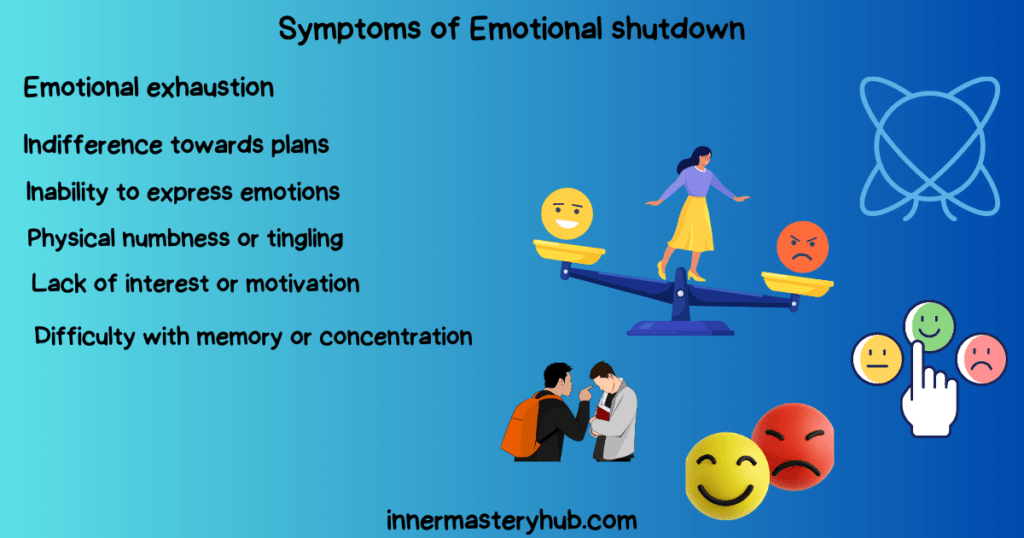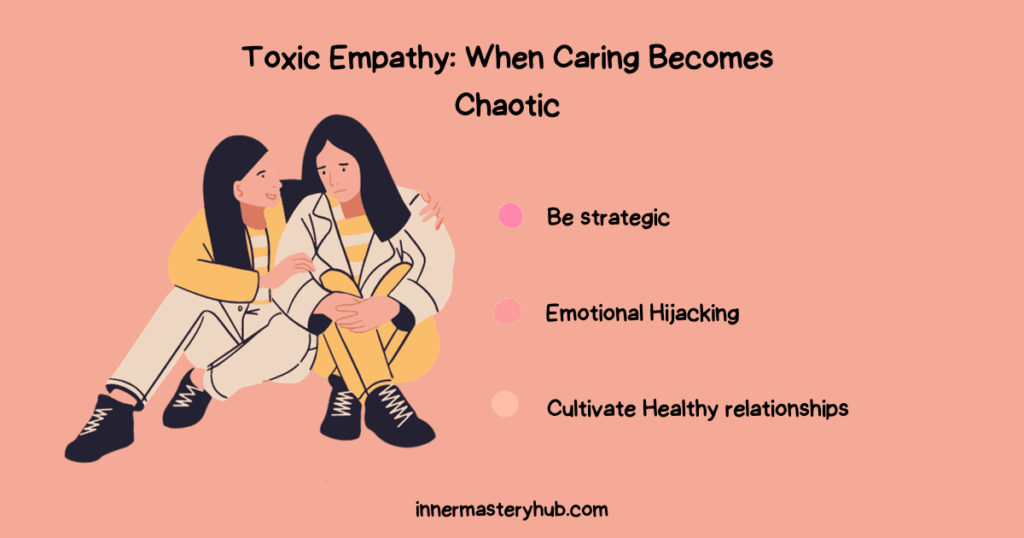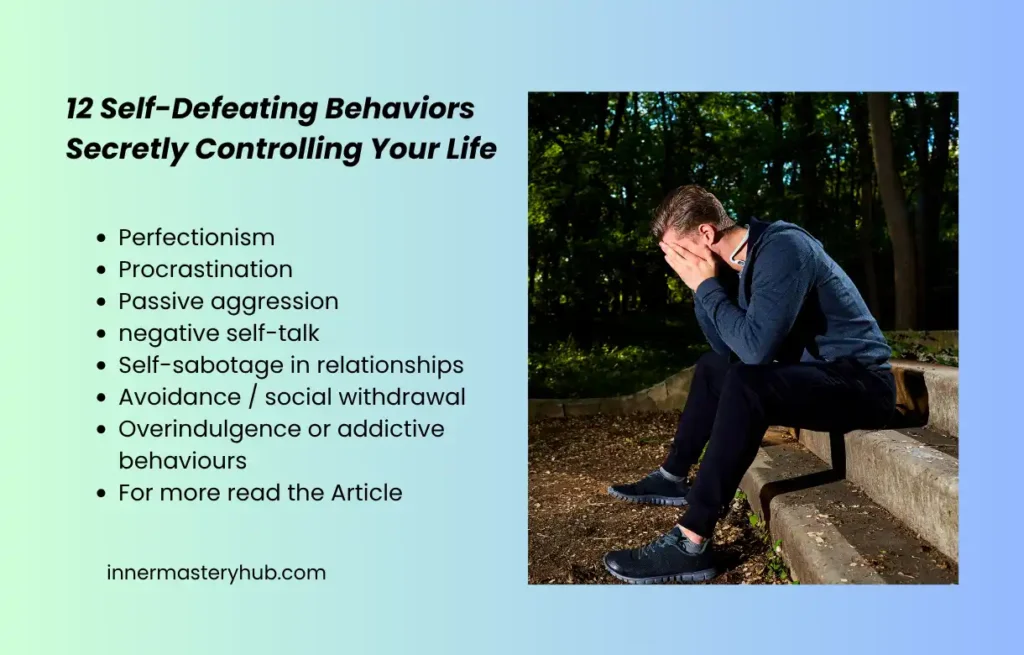Hidden Emotional Wounds of Traumatic Invalidation You Didn’t Know You Had
When someone’s feelings and experiences are continuously denied, particularly when they are at their most vulnerable time, it is known as traumatic invalidation. This can have a significant impact on one’s sense of self-worth, emotional security, and interpersonal trust. It causes long-lasting psychological damage, leading people to question their emotions and reality.

There are moments when you try to express how you feel, only to be dismissed. “You’re overreacting.” “It’s not that serious.” “Why are you so sensitive?” Over time, these responses don’t just hurt; they begin to reshape how you experience your own emotions. This is traumatic invalidation.
Traumatic invalidation happens when someone’s emotional reality is repeatedly denied, especially during vulnerable moments. It teaches the nervous system that feelings are unacceptable. Instead of learning healthy emotional regulation, you learn to suppress your emotions altogether.
When your emotional experiences were invalidated, your system never learned how to process them, only how to silence them safely.
How Does Traumatic Invalidation Affect Emotional Regulation?
Traumatic invalidation disrupts emotional regulation by teaching the brain that emotions are unsafe to express. Instead of processing feelings, the nervous system learns to suppress them, which can lead to emotional shutdown or sudden emotional outbursts later.
Emotional regulation develops through safe reflection. When a child or adult expresses a feeling and receives acknowledgment, the brain learns that emotions can move through without danger. Research in attachment theory shows that consistent emotional attunement supports healthy regulation systems.1
But when invalidation replaces attunement, the process changes. A feeling arises. It is dismissed. The interpretation becomes: My emotional reality is wrong. Anxiety follows, because now expression feels risky. The consequence is either silence or intensity. Both are protective.
Examples of Traumatic Invalidation
Traumatic invalidation leaves a lasting impact on a person’s mental well-being, developing feelings of shame, self-doubt, and emotional dysregulation. Here are some examples of traumatic invalidation:
1. Dismissing Emotional Expression
Emotional invalidation is when your feelings and emotions are not recognized by your loved ones as;
- You’re overreacting.
- Don’t be such a baby.
- You’re being too sensitive.
2. Minimizing experiences
- That was nothing compared to what I’ve been through.
- You’re making a big deal out of nothing.
- You should get over it.
3. Denying reality
- That never happened.
- You’re imagining things.
- You’re mistaken.
4. Blaming the victim
- You brought this on yourself.
- It’s your fault.
- You’re overreacting.
5. Silencing or Discouraging Communication
- Don’t talk about it.
- No one wants to hear about your problems.
- Keep your thoughts to yourself.
6. Disregarding Boundaries or Preferences
- You’re being unreasonable.
- You should do what I say.
- You’re being too controlling.
7. Rejecting Identity or Self-Expression
- You’re being weird.
- That’s not who you are.
- You should just be yourself.
These examples show several ways that traumatic invalidation can appear, rejecting the person’s feelings, thoughts, and sense of self.
Is Traumatic Invalidation a Form of Emotional Trauma?
Yes, when invalidation is chronic and occurs in significant relationships, it can function as emotional trauma. Trauma is not defined only by dramatic events, but by experiences that overwhelm a person’s ability to process safely, especially when support is absent.
Trauma involves helplessness. When feelings are dismissed repeatedly, you may stop trying to explain them. The trigger may be minor, but the emotional response carries accumulated history. Research on emotional neglect shows that a lack of validation can lead to long-term psychological effects similar to overt abuse.2
The absence of acknowledgment can wound as deeply as harsh words.

Where does invalidation come from?
Invalidation comes from various sources and from a combination of factors. Here are some common contributing elements;
Early Childhood Experiences
Caregivers who disregard a child’s emotions might invalidate them. This will lead to internalised self-doubt and difficulty recognising and validating one’s own feelings.
Relationship dynamics
Family, friends, love partners, and coworkers can all experience invalidation. Difficulties with Communication, intelligence, and empathy are caused by it.
Society and expectations
Social norms may encourage invalidating actions, such as denying emotions, ignoring experiences, and suppressing marginalized voices.
Unintentional invalidation
When people fail to recognize the consequences of their words and actions, they unintentionally cause invalidation. Cultural differences, insufficient awareness, and low emotional intelligence can all lead to this.
Manipulative behavior
When someone deliberately invalidates another person to maintain their superiority or gain power, it can be a form of manipulation.
Mental health disorders
A cycle of invalidating events can be intensified by some mental health conditions, such as borderline personality disorder, which can also make people more susceptible to invalidation.
How Does Traumatic Invalidation Affect Adult Relationships?
Traumatic invalidation leads to withdrawal, people-pleasing, emotional shutdown, or heightened defensiveness in adult relationships. Because past dismissal shaped emotional regulation, current disagreements trigger deeper fears of being misunderstood.
In conflict, a partner’s neutral tone might feel loaded. A small disagreement might awaken old interpretations: Here we go again. My feelings don’t matter. The emotion escalates quickly, not because the present moment is catastrophic, but because the nervous system remembers experience.
Or the opposite happens. You go quiet. You disengage. You say,” It’s fine,” when it is not fine. That silence is not indifference. It is protection.
How do we deal with traumatic invalidation?
With the right support and tools, you can heal the psychological harm and regain your identity, even though dealing with awful invalidation can be challenging. Taking these steps can help you in managing unpleasant invalidation:
Acknowledge your invalidation: This is the first step. This could prove to be simple, particularly if you were raised believing that being invalidated is normal. The healing process cannot begin unless the invalidation is acknowledged.
Verify your own experiences when you have come to terms with the fact that they have been discredited. This means acknowledging your thoughts, emotions, and experiences as real and true. Keep your observations undisturbed by the invalidation of others.
To develop self-compassion, show yourself love and forgive yourself for any errors you may have committed.
To protect yourself from further abuse, you must set boundaries if you still communicate with the person who has invalidated you. This involves avoiding excessive contact, being clear about your needs, and not disclosing personal information.
Discover the phenomenon of traumatic invalidation. This will help you understand how it affects your life and create coping strategies. You can find information about traumatic invalidation in numerous books, articles, and websites.
Seek professional help if the effects of painful invalidation are causing you distress; a therapist can offer you the support and tools you need to heal.
After experiencing significant invalidation, it takes time and effort to recover and rebuild your sense of self, but it is possible. With the right resources and support, you may live a better, more fulfilling life and move past the anguish of invalidation.
Can Self-Trust Be Rebuilt After Traumatic Invalidation?
Yes, self-trust can be rebuilt by consistently recognizing and validating your own emotional experiences. When your internal acknowledgment replaces external dismissal, emotional regulation gets strengthened, and self-doubt gradually decreases.
Healing does not mean proving others wrong. It means shifting your internal interpretation from I am wrong for feeling this to My feelings deserve understanding.
Research on self-compassion shows that acknowledging emotions without judgment reduces emotional distress and increases resilience3. Validation does not amplify emotion; it stabilizes it.
The shift is powerful. When you stop arguing with your feelings, they get soft naturally.
Why Understanding Traumatic Invalidation Changes Everything
Understanding traumatic invalidation changes everything because it reframes your emotional struggles as learned protective responses rather than personal flaws. The new clarity reduces shame, and reduced shame allows emotional regulation to strengthen naturally.
When you recognize that your shutdown came from adaptation, not weakness, something inside relaxes. You are not broken. You are protecting yourself.
That realization does not erase the past, but it restructures it. Instead of seeing yourself as too emotional, you see a nervous system shaped by experience.
And that shift restores dignity.
Traumatic Invalidation Is Not About Weakness, It Is About Survival
Traumatic invalidation begins quietly, but it reshapes self-trust over time. It teaches you to doubt feelings, silence expression, and minimize your emotional world. While it may appear as withdrawal, it is the result of repeated dismissal during vulnerable moments.
Understanding traumatic invalidation does not create blame. It creates clarity. And clarity reduces shame.
When you see that your emotional responses were shaped by experience, not defect, emotional regulation becomes possible again, not forced. Not performed but rebuilt through recognition.
If this resonates deeply, continue exploring emotional regulation and self-validation practices. Awareness is not the final step, but it is the foundation.
FAQs about Traumatic Invalidation
What is traumatic invalidation?
Traumatic invalidation happens when someone’s feelings, experiences, or pain are dismissed or ignored, especially during a crisis. It can make a person feel unseen and unsafe, deepening emotional wounds and preventing healing. Over time, it may lead to anxiety and self-doubt.
How is traumatic invalidation different from regular invalidation?
Regular invalidation may be hurtful, but it is unintentional. Traumatic invalidation, however, occurs during or after traumatic events and damages a person’s emotional stability. It reinforces shame, silences the victim, and worsens trauma by denying the reality of their suffering.
Who can cause traumatic invalidation?
It can come from anyone: parents, partners, friends, teachers, coworkers, or professionals. It happens when others are uncomfortable with strong emotions or trauma topics. Even well-meaning people can invalidate someone by trying to “fix” or minimize their pain rather than listening to and validating it.
What are the emotional effects of traumatic invalidation?
Victims feel shame, confusion, anger, and deep loneliness. They start doubting their feelings and memories. Over time, it causes depression, anxiety, low self-esteem, and difficulty trusting others.
Why does traumatic invalidation hurt so much?
Because it denies a person’s reality at their most vulnerable moment, when someone in pain is told their feelings don’t matter, it creates emotional betrayal. The brain interprets this as danger, intensifying trauma and reinforcing the message that their suffering is not worthy of care.
How can someone heal from traumatic invalidation?
Healing begins with recognizing that it wasn’t your fault. Therapy, supportive communities, and validating relationships help rebuild trust and self-worth. Journaling and mindfulness also restore your inner voice. Most importantly, healing requires patience, compassion, and learning to believe your feelings are authentic and valid.
What are examples of invalidation in relationships?
Examples of invalidation in relationships include ignoring feelings, saying “you’re overreacting,” dismissing concerns, changing the subject during emotional talks, blaming sensitivity, or minimising pain instead of listening and offering emotional support.
Can parents cause traumatic invalidation?
Yes, especially if caregivers repeatedly minimize emotions during childhood. Emotional attunement is critical for healthy regulation development.
Does traumatic invalidation cause anxiety?
Yes, because repeated dismissal can create hypervigilance around emotional expression, leading to chronic anxiety.
- Attachment-Related Differences in Emotion Regulation in Adults: A Systematic Review on Attachment Representations ↩︎
- Molecular impacts of childhood abuse on the human brain ↩︎
- The Relationship Between Self-Compassion and Resilience ↩︎






